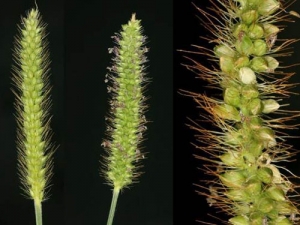Farmers are being reminded that this time of year is a peak one for the spread between properties of the damaging pest plant yellow bristle grass.
Waikato Regional Council says a key way of helping prevent its spread is for farmers to avoid grazing stock or making hay from vegetation growing on roadside verges.
"Bristle grass can take over farm paddocks and damage the profitability of dairying so avoiding its spread will help support productivity," says pest plants officer Darion Embling.
Yellow bristle grass is a summer-growing plant with distinctive, cylindrical seed heads with many yellow-tinged bristles.
Seeds can particularly be spread along roadsides by mowers and other mechanical means, as well as in freshly chopped maize silage being moved around. After becoming established on the roadside it can quickly move into farm land, said Embling.
"Yellow bristle grass seeds also pass through animals after being eaten and is spread around farm in dung."
Studies have shown that dairy farms infested by the plant can see a 13 per cent drop in dry matter production, with the cost of supplementary feed required to maintain milk production estimated to be $343 per hectare a year.
Besides not grazing or making hay from roadside vegetation from December to May, Embling offered the following tips to help stop the spread of yellow bristle grass:
· ensure that all imported maize chopped for silage gets into the pit and that loose debris is not spread along the access way and into adjacent pasture
· inspect all incoming hay and machinery unless the source is known to be free of yellow bristle grass
· restrict the feed out of infested hay to areas where yellow bristle grass can be readily controlled
· check that stock being brought in from outside the farm during summer have not grazed yellow bristle grass infested pasture.
For further advice check go to www.dairynz.co.nz/feed/pasture/pests/yellow-bristle-grass or contact Embling at This email address is being protected from spambots. You need JavaScript enabled to view it. or on 0800 800 401











